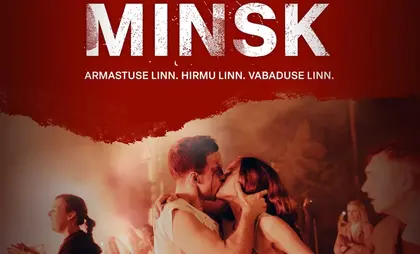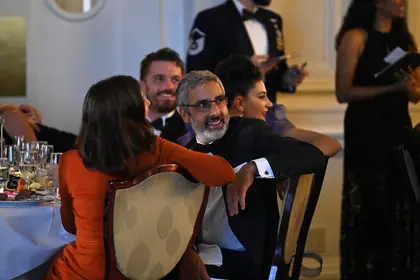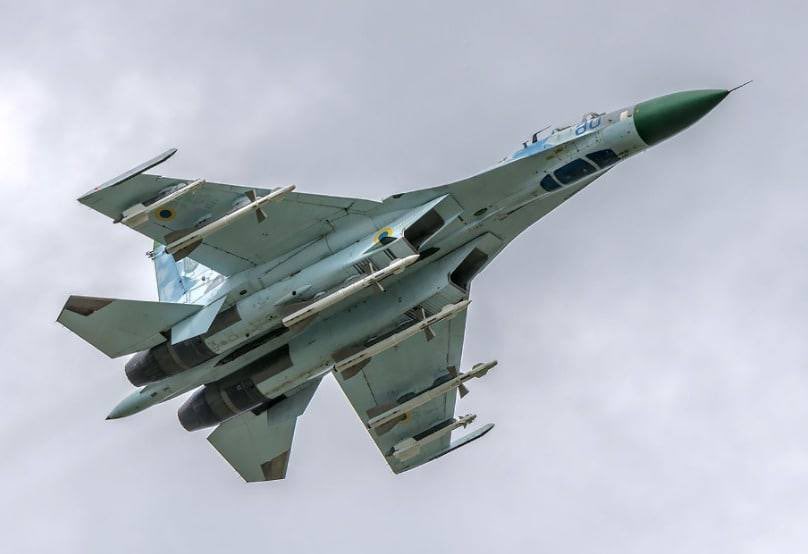My conversation with Andrij Parekh, Emmy Award winner of the highly acclaimed American TV series “Succession” took place a few weeks before the war started on Feb. 24. Parekh is of Ukrainian and Indian descent which led to a rich conversation about Ukraine, film and cinematography, working with actors, forthcoming projects and more.
Because of the war, I put this material on hold. But given the amount of support shown by actors and film makers in Hollywood and the Cannes Film Festival, I decided our discussion retains its relevance and interest, providing an insight into American cinematography and about one of its brightest figures.
JOIN US ON TELEGRAM!
Follow our coverage of the war on the @Kyivpost_official.
Lesia: So, you’re part Ukrainian and part Indian? What did your childhood look like?
Andrij: My brother Marko and I were raised Ukrainian as my mother is very attached to her Ukrainian roots. She was born in Goslar, Germany in a labor camp during the war and arrived in the U.S. around 1949. It was important for her that we were raised Ukrainian, attending a Ukrainian school on weekends. That was in Minneapolis.
Lesia: And your dad didn’t mind?
Andrij: My dad left India after high school and is not as culturally attached to his background, so he was very supportive of my mother raising us the Ukrainian way and speaking the language. He would take us to church, even though we didn’t want to go, which was all the time! He was always there, in the background, helping her raise us as Ukrainians.

Film Exposes Bloody Protests of Lukashenko Regime
Lesia: You said that you travel to Ukraine quite often. What do you think of the country?
Andrij: I started going just after the Soviet Union broke up in 1991. I also began shooting commercials for my friends Darko Skulsky and Roman Kindrachuk, who had set up a production company, Radioaktive Film. He gave me my first job as a cinematographer fresh out of film school in the late 1990s and early 2000s.
I loved it. Ukraine was in the midst of a rebirth, and it certainly was the “Wild West” to some degree. There’s still a little bit of that left, but I think things have become much more normalized. It’s amazing. There’s a Ukrainian middle class. It’s a very young country full of hope and optimism, despite what’s happening with the angry neighbors.
I last visited two years ago and I hold Ukraine very close to my heart. I can’t wait to go back.
Lesia: So, why cinematography?
Andrij: Good question. After my sophomore year at university, I took some time off, working and traveling around the world. That’s when the camera became a way for me to communicate with people, and I just started taking pictures. Before film school, I couldn’t tell the difference between a cinematographer and a director. However, I knew that I was adept with the camera, so I gravitated toward that. I also lacked the vocabulary to speak to actors as they terrified me, and they still do. So life behind the camera suited me well.
Lesia: What kind of vocabulary do actors use?
Andrij: There are certain ways to speak to actors to get the performance you need from them as a director. You need to understand their process. But I lacked that vocabulary when I started film school. It’s only now, I think after 20 years of being a cinematographer and working closely with directors, that I can comfortably talk to actors.
Or I can at least fake it!
Lesia: I’m sure actors are not the easiest people to speak to.
Andrij: The good ones who know what they’re doing are extremely good. They’re like horses – they smell fear.
Lesia: Do you get along with them?
Andrij: It certainly helps to get along as you spend 15-16 hours a day with people on set. Plus, the work is already difficult so it pays to have a good relationship.
Lesia: And do you succeed?
Andrij: We try. Conflict is a part of being human, but I think that’s where someone has to exert their humanity – by making things work and not letting things break down.
Lesia: Are there many Ukrainians in Hollywood?
Andrij: Since I live in New York, I don’t really know. To me, it was never necessarily about that. I enjoy working with everyone.
Lesia: You won an Emmy Award, congratulations. What does it feel like?
Andrij: Well, it’s the first award I’ve ever received since I won a calculator in a raffle at age 11. It was exciting. But honestly, recognition is not too important for me. Work is still work. Those award shows always feel to me like a game of darts but film-making is not a race with winners and losers. I guess I just got lucky.
Lesia: It’s really subjective, isn’t it?
Andrij: It’s completely subjective. I’d directed three or four television shows before I won the Emmy. Everything’s collaborative so to single out an individual just seems a bit strange to me.
Lesia: “Succession” isn’t your typical American TV series. The show has a different method, way of acting, and involves actors from various backgrounds. Do you think that in some way it reflects the changes within American society in general?
Andrij: I’d say that it exposes the hypocrisy of American society. If you’re rich, you’re right. Or it gives you the automatic status of being correct or morally correct. So that’s what I think “Succession” pokes fun at and tears apart. The characters are extremely wealthy, yet they’re also tormented, twisted, and real. They’re human. That’s why we enjoy making the show, which also has its own sense of humor. Otherwise, it would be very hard for people to watch it.
Also, the writers are principally British. So, there is a sense of wit and self-depreciation which maybe doesn’t come along too often in American television.
Lesia: I’ve noticed the British touch as sometimes they use words that are not very common in American English. Why do you think the show became so popular in the U.S. then?
Andrij: I think if it weren’t for the Trump Administration, it wouldn’t be as popular. What’s under the microscope is the Fox News culture and how the media directly influences politics and vice-versa. And I think the previous administration was a great example of that.
Lesia: What are the actors like? Are they nice in real life? Do they get along?
Andrij: They mostly get along. I love them all dearly in their own way and am friends with them outside of the show. There are definitely elements of their personalities in their characters.
Take Brian Cox who plays the media mogul Logan Roy. Whenever he barks on the show or at someone on set, it’s the same effect.
Meanwhile, Jeremy Strong (Kendall Roy in the series) is a very committed method actor, and it’s amazing to watch him perform in his own style that differs from others. It’s perfect for his character who is a person emotionally isolated. A strange mix of art imitating life and life imitating art, and that’s the magic of the show.
Lesia: In 2004, you directed a movie called “Snowblink” based on Gabriel Garcia Marquez’s novel. A Colombian writer and Ukraine – what’s the story here?
Andrij: In the novel, a honeymooning couple from South America go to France where they find it hard to communicate. It just seemed like it wasn’t that far away from having a French couple go to Ukraine.
Lesia: What was it like to film in Ukraine in 2004?
Andrij: It was incredible. We shot in L’viv and Kyiv. I remember being in Kyiv in 1992 and there were no light bulbs in the street because people had stolen them. But it was amazing shooting there in 2004 and we had a really beautiful time working on the movie with the help of my friends Darko and Roman.
Lesia: What do you think about Ukrainian movies these days?
Andrij: I haven’t really seen any modern Ukrainian films that caught my attention. Kira Muratova and Lesya Shepitko are amazing filmmakers. Would you say that they are Ukrainian or a Soviet filmmakes? I’m not sure. I’m not up to date with what’s happening now in Ukrainian cinema.
Lesia: Do you cooperate with the Ukrainian film community? Inspiring the next generation, perhaps?
Andrij: I would love to go back at some point to show work at a film festival. I feel there’s a need to do that and bring a kind of energy and interest to Ukraine and Ukrainian cinema. I’d also love to shoot something in Ukraine again.
Lesia: What kind of movie do you have in mind?
Andrij: I can’t say for now, we’ll see what happens.
Lesia: You’re currently working on a quirky drama called “The Red Rainbow.” What’s that about?
Andrij: The plot centers on a Soviet official who accidentally attracts a group of very flamboyant, gay activists. It’s quite funny, very truthful and very real, and is also an important story to tell.
Lesia: Where will you be filming?
Andrij: Possibly Kyiv. The story is supposed to take place in Moscow but, given the situation, the project will definitely not shoot in Russia in my opinion.
Lesia: What’s your favorite movie and why?
Andrij: I have three favorites. “Eight and a Half” by Federico Fellini. I think it’s an incredible exploration of a person in crisis with all of its wit and charm.
I also love “Apocalypse Now” by Francis Ford Coppola, which is one of the finest travel logs and war stories.
Also, Bernardo Bertolucci’s “The Conformist.” The cinematographer behind it, Vittorio Storaro did an incredibly stylish job.
Lesia: So, you’re more European in your preferences?
Andrij: Perhaps. There’s just a kind of madness in their cinema that I think is interesting.
Lesia: Finally, which cuisine do you prefer: Ukrainian or Indian?
Andrij: Indian 100%! Sorry.
Lesia: What a shock!
Andrij: In Ukrainian cuisine, the most interesting spices are salt and pepper.
You can also highlight the text and press Ctrl + Enter








Comments (0)